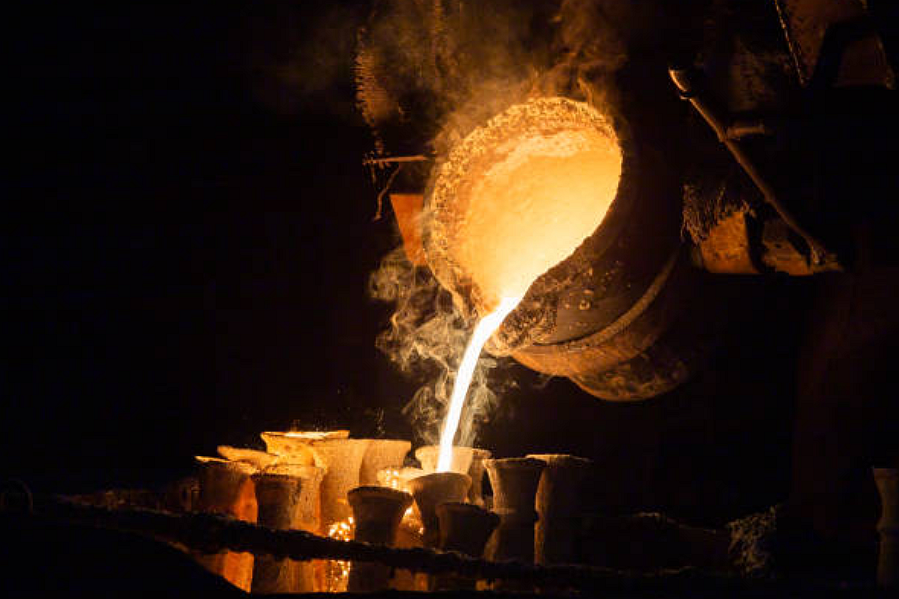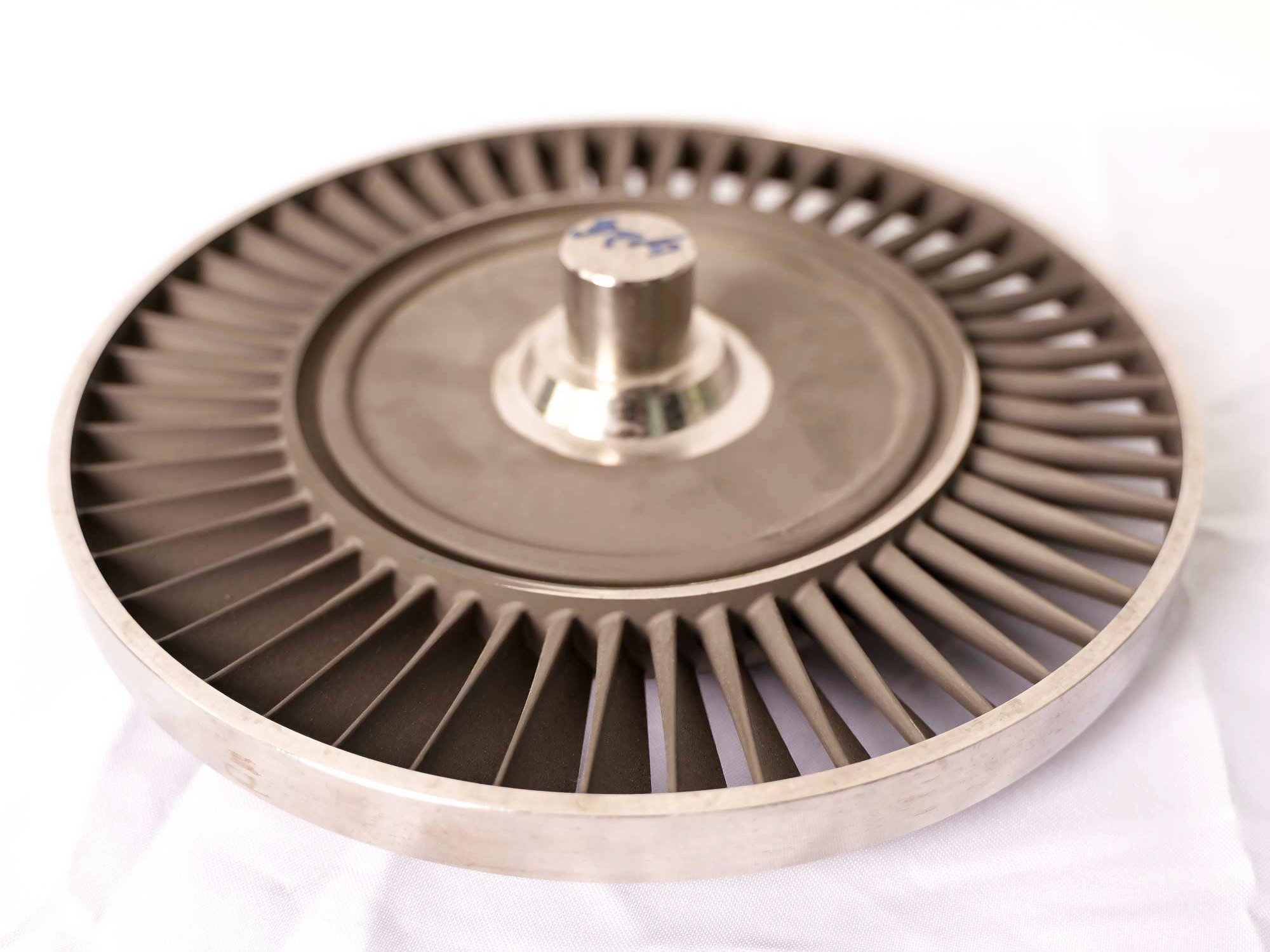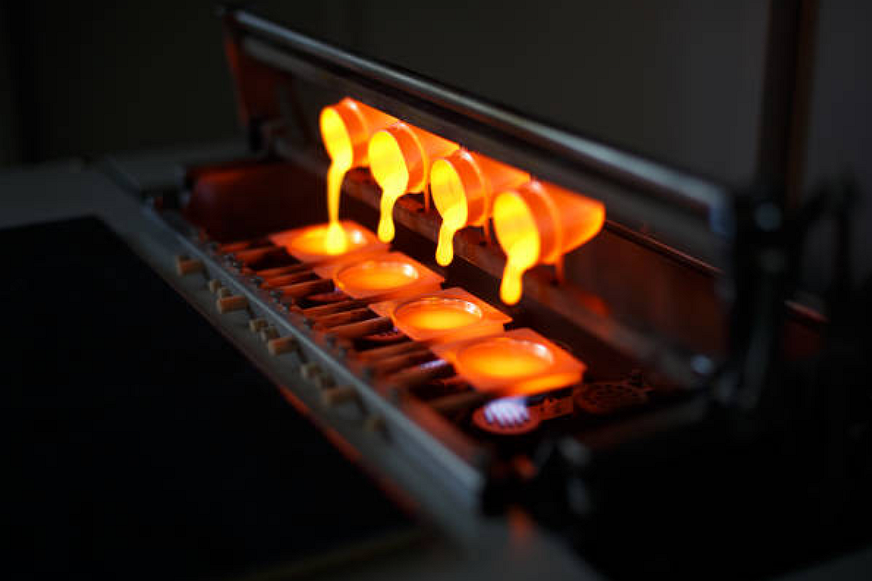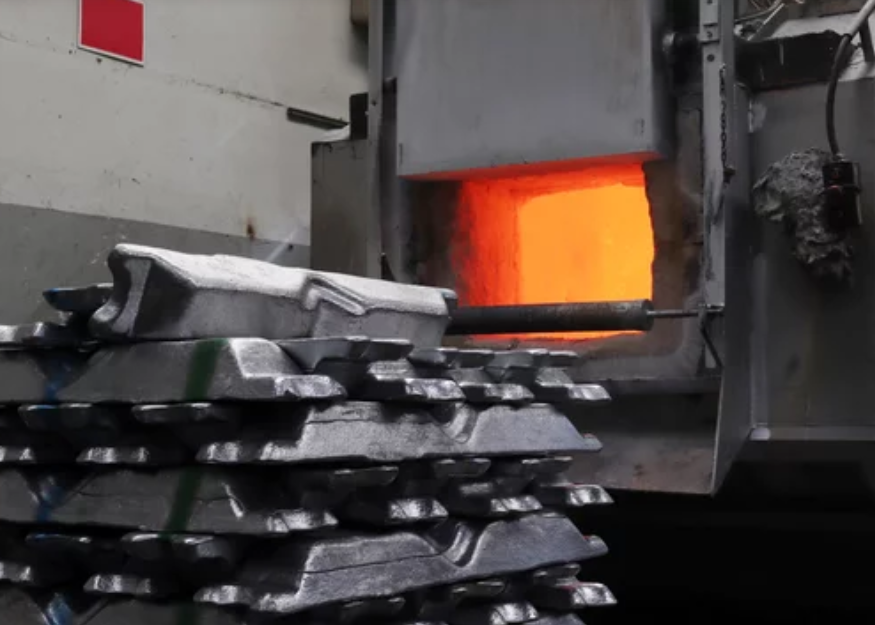Can Titanium be Investment Casted?
Titanium is emerging as a highly desirable metal for engineering applications across aerospace, medical, automotive, and chemical processing industries. It is driven by titanium's outstanding strength-to-weight ratio, corrosion resistance, biocompatibility, high melting point, and other unique properties. However, titanium is notoriously difficult to machine and fabricate using conventional methods. It invests in casting, an increasingly popular option to produce complex titanium parts to near-net shape.

But can titanium and its alloys be successfully invested cast? What are the significant challenges involved? And what are the advantages of investment casting titanium components compared to alternatives? Neway explores this article's titanium investment casting process, its distinct challenges, and the many benefits that make it an ideal production method for critical titanium components.
Titanium Investment Casting Process
Investment casting, or lost-wax casting, is a specialized metal forming process ideal for complex, detailed, high-performance metal parts. It uses a disposable wax pattern to form a ceramic mold filled with molten metal to produce precise castings.
The same investment casting process steps are followed to cast titanium parts:
Pattern fabrication – Injecting molten wax into steel dies to produce high-fidelity wax replicas of the final parts. It may involve solid patterns or wax cores for hollow castings.
Pattern assembly – Attaching patterns to sprues to create a wax pattern tree cluster. It allows multiple parts to be cast together.
Mold making – Repeatedly dipping the wax tree into a ceramic slurry and stucco sand to build ceramic shell molds around each pattern. Modern three-layer molds are common.
Dewaxing – Melting out the wax to leave behind hollow mold cavities. It is done in steam autoclaves or flash-fire dewaxing ovens.
Firing – Hardening the ceramic molds to prepare them for metal pouring by firing between 1600°F to 1800°F.
Casting – Pouring molten titanium alloy into the preheated ceramic molds using vacuum-assisted pouring or centrifugal casting methods.
Divesting – Removing castings from molds by water blasting, vibration, or chemical dissolution.
Finishing – Grinding off gates and runners and performing final machining or other finishing operations.
Challenges of Titanium Parts Investment Casting
While the exact process steps are followed, successfully investment casting titanium alloys like Ti-6Al-4V and TiAl introduces some unique challenges:
Reactivity of molten titanium – Titanium alloys are highly reactive at high temperatures and can react with ceramic mold materials, leading to defects. It necessitates special mold coatings.
High melting point – Titanium melts around 3000°F, making it difficult to achieve adequate fluidity and complete mold filling without porosity defects. Exceptional induction melting is needed.
Dimensional shrinkage – The high solidification shrinkage of titanium alloys, up to 2.2%, must be accounted for in pattern design to achieve final part dimensions.
Affinity for gases – Molten titanium readily dissolves oxygen, nitrogen, and hydrogen, affecting mechanical properties. Vacuum pouring is essential.
Pyrophoric nature – Finely divided titanium particles can self-ignite in air requiring handling precautions.
Low wax compatibility – The high pouring temperatures limit wax pattern material options for titanium investment casting.
High cost – The specialized equipment, use of consumables, lower yields, and intensive processing result in high costs.
Overcoming these challenges involves specialized pattern making, mold materials, melt practices, and quality control procedures tailored to titanium's unique properties. It is especially critical for demanding aerospace applications.
Benefits of Titanium Investment Casting
Despite the challenges, investment casting offers significant benefits that make it the preferred manufacturing method for critical titanium components across industries:
Achieve complex shapes – Investment casting can produce highly complex geometries impossible by other fabrication routes. Intricate airfoils, honeycomb structures, and organic shapes are possible.
Exceptional surface finish – The ceramic mold interface produces smooth, as-cast surfaces that minimize finishing. Surface roughness as low as 16 μin (0.4 μm) is possible.
Reduce machining – The close tolerances and net shape casting reduces machining to millimeters rather than centimeters. 60-80% reductions in machining time and cost are realized.
Cast exotic alloys – Investment casting readily casts titanium alloys, nickel superalloys, and other metallurgies that are difficult to fabricate otherwise.
Overcome brittleness – The as-cast fine grain microstructures overcome titanium's intrinsic brittleness allowing complex cast shapes. Post-casting heat treatment can further improve ductility.
Lower total cost – Despite higher casting costs, significantly reduced raw material waste, machining, and part assembly result in lower total part cost.
Reduce lead times – Investment casting produces completed parts for wrought or fabricated titanium components in 2-4 weeks rather than months.
Cast large and small parts – Sizes from several ounces to hundreds of pounds are castable using titanium investment casting.
Aerospace and Medical Applications
The titanium investment casting process produces high-performance components with complex organic shapes or internal voids in aerospace and medical device industries. It is not possible by subtracting machining methods.
Typical aerospace applications include:
Turbine blades and vanes
Structural airframe castings
Engine mounts and housings
Airflow control components
Landing gear parts
UAV and missile components
Medical device applications include:
Orthopedic and dental implants
Surgical instruments
Medical accessories and casings
Biocompatible prosthetics
Minimal magnetic signature components
Titanium investment casting delivers optimized mechanical properties from the as-cast fine microstructures. It allows consolidating sub-components into integrated cast parts, reducing assemblies. The biocompatibility avoids extensive coating or finishing operations. Custom lightweight titanium castings directly replace heavier, expensive machined parts with huge lead time and cost savings.
Emerging Applications of Investment Cast Titanium
The expanding capabilities and capacity of titanium investment casting foundries lead to increased adoption across automotive, chemical, and other industries.
Automotive - Valvetrain components, turbocharger wheels, suspensions, and drivetrain parts leverage high strength, fatigue resistance, and cast complexity.
Chemical - Due to corrosion resistance, titanium investment castings are ideal for pumps, valves, pipe fittings, reaction vessels, and heat exchangers handling aggressive chemicals and high temperatures.
Commercial - Cast titanium is used in decorative architectural features, luxury products, sports equipment, musical instruments, watches, and other high-value applications.
Additive manufacturing - Investment cast titanium parts are commonly used as subtractively machined feedstock for AM powder bed processes.
Conclusion
In conclusion, investment casting provides distinct advantages for producing complex titanium parts with high accuracy, fine surface finishes, minimum machining, faster delivery, and often lower total cost than wrought or machined alternatives. While requiring specialized techniques to overcome titanium's inherent challenges, investment casting is the preferred and often only fabrication route for critical titanium applications spanning key industries.
Why Neway for Investment Casting Service
Neway has been a leading manufacturer of non-standard parts for over 30 years. Our expertise lies in metal, ceramic, and plastic injection molding, precision casting services like die casting and foundry casting, sheet metal processing, and rapid prototyping. With precision, speed, and competitive pricing, Neway delivers exceptional value for all your custom part needs. Act now to get 20% off your first order!



